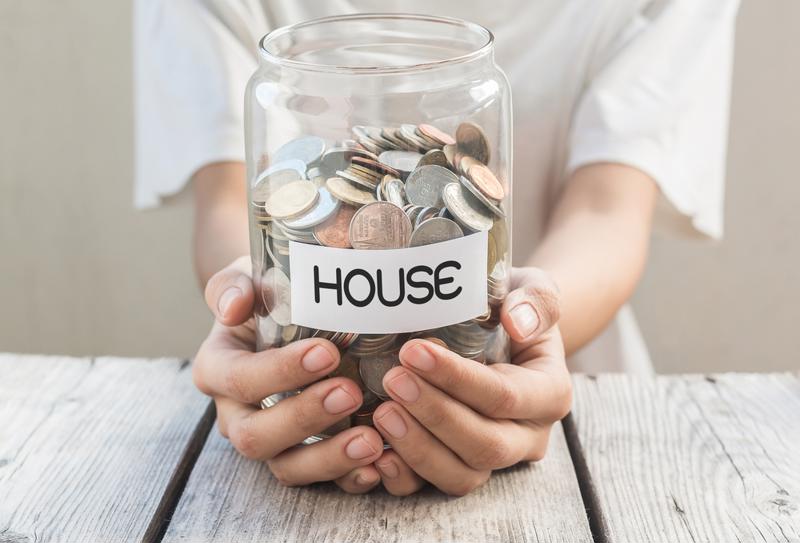How to start saving in order to buy a home in Spirit Lake, Iowa
Purchasing a house, especially for the first time, is a life-changing experience. While renting has its perks, you will most likely enjoy owning a home even more.
When you own a house, it truly is yours, provided you pay off the mortgage. You are your own landlord and you’re free to make any changes inside and outside that you want. It’s also the place where you can raise a family if you choose to do so.
While becoming a homeowner is often a life experience, it’s also an important part of the economy, because when markets are performing well, more homes are being constructed and bought. When times are a bit tougher, it becomes more difficult to buy a home because there are more restrictions on borrowing money.
After all, unless you’re sitting on mounds of cash, you will most likely have to take out a mortgage to buy a house, the total cost of which will vary depending on the city you’re looking at, neighborhood and finally, the asking price.
It’s been just under a decade since the economic downturn, and since then, many individuals and families have recovered. Younger generations who grew up during that time are currently entering the age when they may be looking to make their first home purchase.
However, they may also think it’s difficult to afford one, due to other financial obligations, and understandably so. Renters currently have to pay their landlords, in addition to utilities and more.
But with good money habits, you can absolutely start saving for a house.
 Open a savings account and start saving for a down payment.
Open a savings account and start saving for a down payment.Financially prepare yourself
To kick off the process, you will want your finances in check before setting aside money for a home. Everything starts with budgeting so you have enough to pay your essential bills and afford food, while still able to save for emergency savings and retirement.
Your ability to budget and buy a home hinges on your income. You generally want a reliable and steady source of income.
While it may sound counterproductive, you should aim to knock out any outstanding debts you currently have before seriously saving for a down payment. Look to pay off any credit cards, auto loans and similar bills. Ideally, you should have zero debt, but you can still comfortably buy a home if debts are under control.
However, you should still contribute what you can to the down payment fund. As you eliminate outstanding debts, put the money that would have normally gone toward a monthly bill to the down payment. Before you know it, your money will grow at a pretty fast rate.
Tools for saving
Once you’ve established a monthly budget and have a good amount saved for the down payment, it’s time to open an account that will be specifically for the down payment.
Luckily, you have plenty of options at your disposal. First up is a standard savings account. Open up multiple accounts that serve different purposes. For example, you ideally should have an emergency savings account, a standard one and then your down payment funds.
Savings accounts are great because the money is a bit more difficult to access and will collect interest. Unfortunately interest rates are still relatively low, which makes saving more difficult.
Certificates of deposit represent an option that carry higher interest rates and are a bit more flexible. CDs have a predetermined life span, from as little as three months to as long as five years. You can maximize your savings by building a CD ladder, where the eventual goal is to reinvest the money of an expired CD into a new one.
Another option to look into is a bond fund, but only if you are certain you will not purchase a house for at least three to five years. These will provide higher yields, but carry some risk because they are tied to the health of the stock market.
“You will want to follow the 20 percent rule.”
Keep in mind that just because there are multiple options to save money doesn’t mean you have to limit yourself. You can use as many, or few, savings tools as you wish. You may find that a good mixture may yield a healthy return.
Set a goal
Once you’ve decided to buy a house, you need to settle on a price range. This is important because it will determine how much you should save for a down payment. Ideally, you will want to follow the 20 percent rule. Any less and the lender will likely give you a higher interest rate.
But once you have a goal, you must concentrate on meeting it. Save as much as you can, and as often as possible.
Do whatever it takes
In the short term, you may need to make some sacrifices that include cutting costs from your budget. You may also find it beneficial to take on a part-time job or find another source of income for the foreseeable future.
Don’t overexert yourself, but keep in mind that the extra work and saving for a house is part of the bigger goal.
Blog Info Courtesy of Bank Midwest Blog and Steve Krause, Exit Realty Midwest, Spirit Lake, IA 51360





